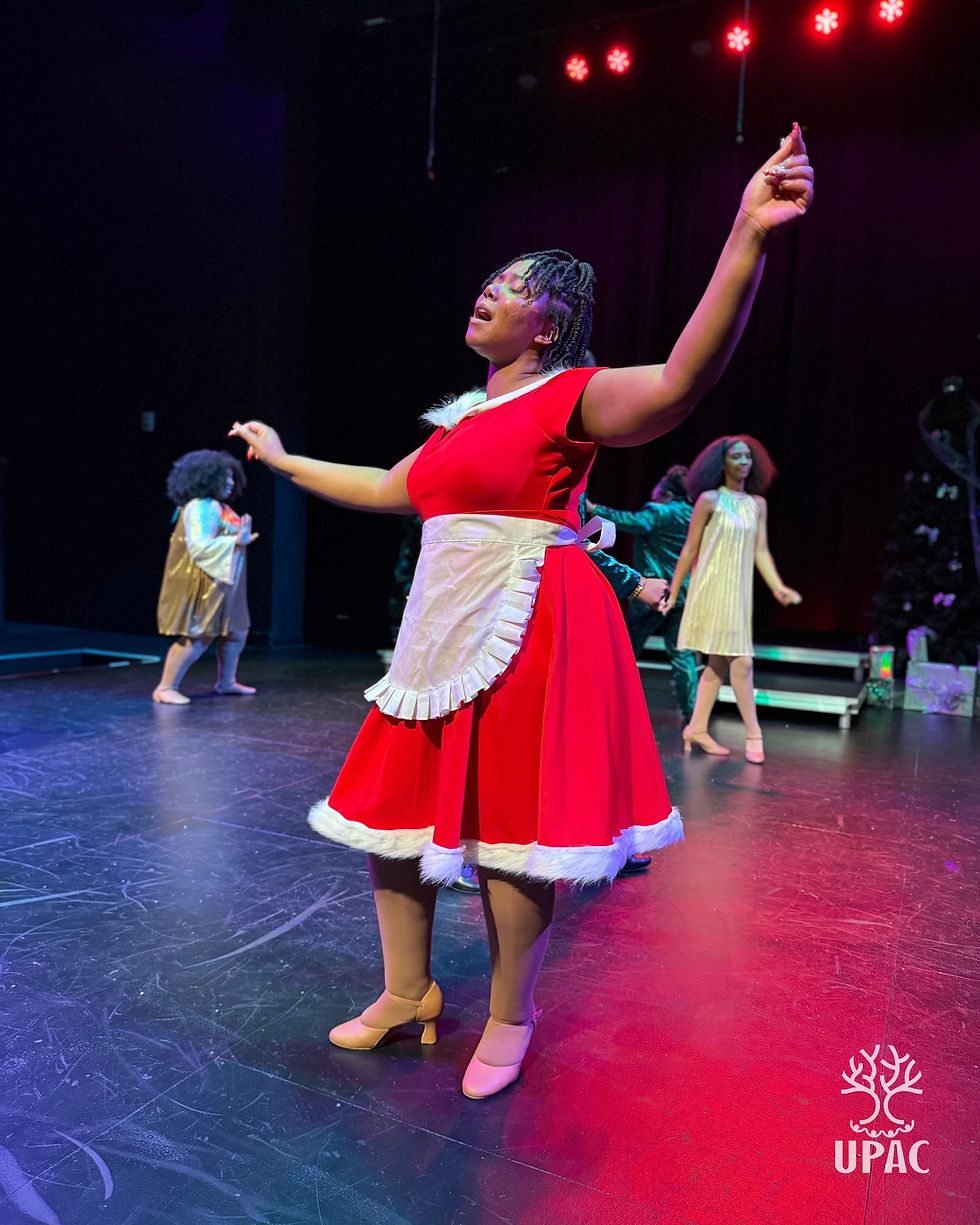Trouble in Tahiti Transcends Time
- Spotlight News Hampton Roads

- May 5, 2021
- 4 min read

Words by Nathan Jacques. Image Courtesy of the Virginia Opera.
The light at the end of the tunnel shines brighter and brighter each day! Vaccines are now abundant, and spirits are high, especially within our arts community. Live productions are no longer off-the-table, and Virginia Opera becomes one of the first of the Hampton Road’s arts organizations to produce a fully staged production for a live audience, a precious commodity that the performing arts never feel complete without.
Spearheading this effort is their production of Leonard Bernstein’s Trouble in Tahiti, a fifty-minute opera that follows an endearingly dysfunctional marriage accompanied by the jazzy charm of the 1950’s. Performed in conjunction with the Virginia Symphony Orchestra as a part of the Virginia Arts Festival, this production of Trouble in Tahiti, the company’s first fully live production since the COVID-19 crisis, carries unique significance to both Virginia Opera and the area’s arts history.
To gauge the impact of this production, we interviewed both the director of the production, Kyle Lang, and the leading lady, Marissa Simmons, about the show’s potential takeaway for those who attend and how it feels to finally be able to present their art to a live audience again.
What is the most surprising element of Trouble in Tahiti? What part of it do you think audience members will discuss the most during the car ride home?
Marissa: For me, the most shocking part of the show is the lack of social-emotional intelligence and mental health care. I realize that’s a vastly broad topic, but it keeps rearing its ugly head in the show. It blows my mind that a couple that has been married for nearly ten years wouldn’t have the social-emotional intelligence to read each other and communicate their feelings. I always finish this show feeling like, “Yikes...these two need a hell of a lot of therapy.” I know that at that time, therapy and mental health had a huge stigma, and in some ways, they still do, but it’s such a shame for any marriage to become like Sam and Dinah’s when the resources exist. I think a lot of people go through life thinking of therapy and mental health care as something you do when you’re struggling, but they should be tools that we learn to use all the time. I really hope that people take away how important mental health care is—even in the good times. I don’t believe that there is any “perfect” couple. Relationships of all types take work and much of that work must be done when things are good.
Kyle: Unfortunately, I can’t say what moment I believe to be the most surprising, as that would be a giveaway, and I’d like the audience to have the opportunity to experience it for themselves. However, I’ll say that every time I go through the piece, I’m still surprised by the resolution. Though, perhaps there are several moments worthy of afterthought, that’s a moment that will give audience members an open door to discussion of what the show may have meant to its creator and to themselves.
We are finally getting back to being able to perform full shows live and in person. How excited are you to be able to present your art to a live audience again?
Marissa: This last year of the shutdown has been particularly difficult. Not being able to do what I’m truly passionate about has been truly devastating. As many opera singers will tell you, music isn’t necessarily something that we chose, but something that chose us. To say I’ve missed performing would be the understatement of a lifetime. As we’ve been rehearsing, I keep noticing this huge grin on my face at random moments. This feeling of making music with my colleagues just overtakes me and gives me so much joy. While we’ve all worked hard to adapt and bring opera to the public virtually, there is still nothing that compares to the feeling you get when you’re somehow emotionally connected with a mass of people.
Kyle: I’m so grateful for this moment, as are all my colleagues. It’s been such a strange year, indeed. One of the best facets of my job is the development in studio, collaborating with other artists to create a moment of the human condition, then seeing that moment of connection shared with the world is truly a gift. We’ve all felt a bit of loss not having that in our lives. Having this moment in time to once again share our artistry with the public is full of many emotions, the greatest being joy.
Considering the subject matter of the show, do you think real-life couples can learn anything from Sam and Dinah's relationship?
Marissa: I think much of Sam and Dinah’s relationship transcends time. So much of what we really want on a day-to-day basis is just to be seen, heard, and respected. When we treat others with kindness and compassion, we make such a difference in the world. And of course, as I said previously, mental health is vital. We must take care of our minds just as we care for our physical bodies. We don’t have to wait until there is a problem. We owe it to ourselves and those in our lives to take care of our mental health.
Kyle: I certainly think so, at least it has given me several thoughts about my own relationship. One doesn’t necessarily need to identify with Dinah and Sam’s situation in order to understand the importance of communication in a relationship and understand that change is a constant. It’s navigating the changes in the weather that gets the ship to port.



Comments